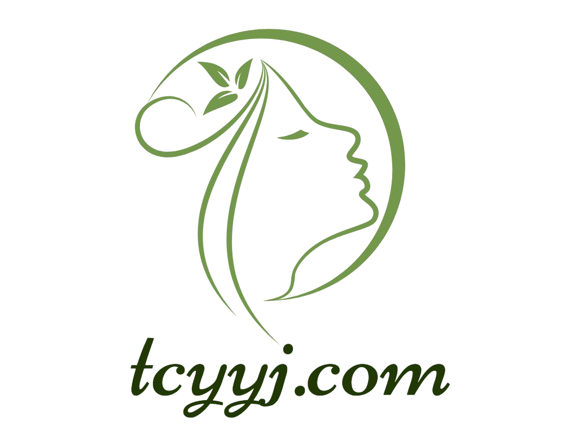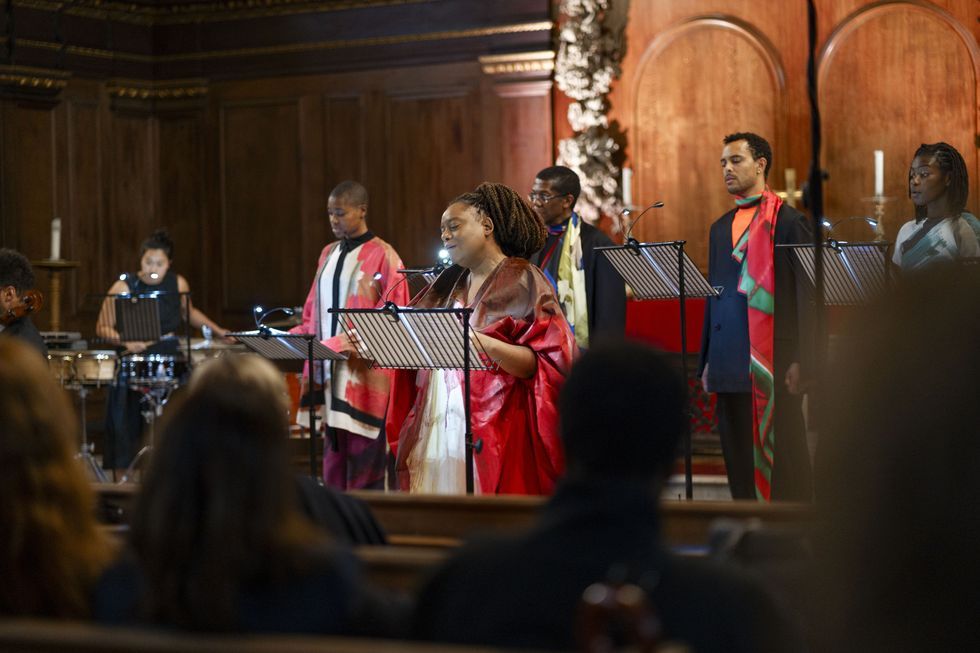It’s early evening in September, and a clarion-clear voice that oscillates from speaking to singing emanates from the sanctuary of St James’s Church. Away from the bustle of Piccadilly, where it stands, a collective of creatives: singers, artists, musicians – has been brought together by the artist Rachel Jones to perform a unique libretto that pushes the boundaries of what art and music can be.
Jones is well-known for her visceral, oversize paintings that explore the interiority of Black bodies through colour and corporal motifs. However, this year, Jones has expanded her practice in the creation of Hey Maudie, an opera-based performance, drawing on the central character of the text Maud Martha, written by the Pulitzer Prize-winning author and poet Gwendolyn Brooks. Through a series of lyrical vignettes, it tells the story of a girl growing up in early 20th Century Chicago, and of her optimism and resilience as life unfolds, bringing with it experiences of a disappointing marriage and the cruelty of racism.
Commissioned by the Roberts Institute, Jones saw this as an opportunity to reach out to creatives whose work she admires, including the Folio Prize-winning poet Victoria Adukwei Bulley, with whom she co-wrote the piece. “We both think that Gwendolyn Brooks is a pioneer and a visionary in the way she approaches writing.” Jones says. “Especially in terms of her own positionality.” They also collaborated with the composer Joseph Howard and Gweneth Ann Rand as the soprano, who helms the majority of the work. Rand interacts with a choral ensemble in a “call and response” form that represents Maud Martha’s soul, while Jones herself delivers Maud Martha’s interior voice.
It was a change to her process. Being a painter is, by nature, a solitary act. However, this project required Jones to take a leadership role, while also developing new skills within a new practice: “I have, through the process, also been learning how to relinquish control and give other people space to bring to the work what it needed,” she says. “I believe you can only do that when you’re on the same level as other people and are working very democratically.” Crucially, she began to think musically for the first time by working with Howard, and together with Adukwei Bulley worked out how to apply sound and the spoken word to language. “The way I write is very much about the interior voice – I’ve been trying to express Maud Martha’s inner dialogue. This is a performance that needs to be sung in the most dramatic and expressive way possible. So both of them have helped me think: ‘how do you shape a sound?’”
Visually, the performers were clad in pink and red robes conceived by Roksanda Ilincic, using both previous designs from the archives as well as a new piece for Rand. Jones and Ilincic first met at Bazaar’s art lunch last October, and the designer subsequently invited the artist to her shows. Jones was interested in the way Ilincic uses material to move around a body, within or through a space. “There’s a subtle elegance and playfulness in the clothes that emphasises the idea of looking,” she says. “This is an integral theme in the opera that translates perfectly to the way she uses material, structure and shape to think about how these things might impact the way we look, and what we understand about self-expression.”
For Ilincic, it was an opportunity to reflect the movements with the soul of the character. “There is a stark contrast between the vibrancy and playfulness of Maudie’s inner world and the bleakness of her harsh reality,” She says. “Rachel and I wanted to extend this message with the costumes and represent Maudie’s inner world, hopes, desires but also her unfulfilled dreams. The incredible soprano Gwen is wrapped in a red cape dress, hand-painted in bold brushstrokes that represent all her vibrancy and broken hopes.
“Opera, like clothes, is emotional, dramatic, personal and powerful and I was so honoured to have been part of an incredible team and Rachel’s new exciting vision.”




